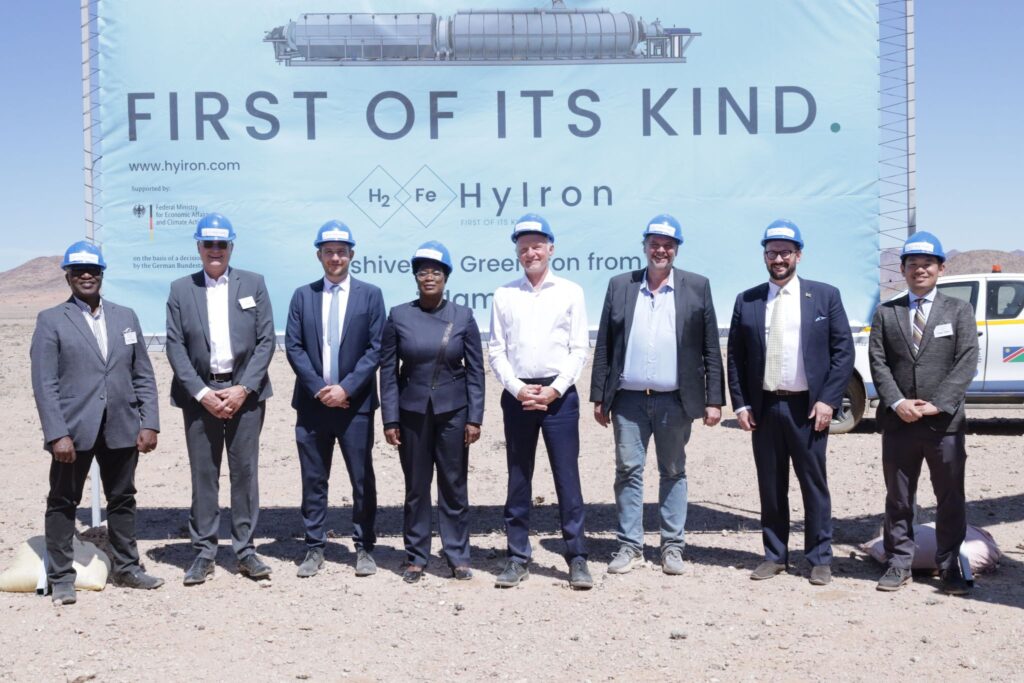Namibia Pioneering Zero-Emissions Iron Production with HyIron Oshivela Project

|
Listen to this story:
|
Namibia charted a way to making global history as the first country to develop the world’s first industrial production of iron at zero emissions. This follows the groundbreaking ceremony of the pioneering HyIron Oshivela Project, a partnership of Namibian and German companies.
This is one of the investments facilitated by the NIPDB, and will contribute significantly to employment creation, technical knowledge transfer, economy diversification, all the while contributing towards decarbonising the planet.
Traditionally, iron production involves carbon-intensive methods, emitting substantial CO₂. This heavy reliance on fossil fuels has made steel production a major contributor to global carbon emissions. The HyIron Oshivela Project will revolutionise this process, employing direct reduction techniques with green hydrogen.
Minister in the Presidency, Honourable Christine //Hoebes who was the keynote speaker at the ceremony, emphasised the significance of the HyIron Oshivela Project for global decarbonization. “The production of iron with zero emissions positions Namibia as a leader in environmentally responsible industrial practices, creating economic opportunities and enhancing living standards in the nation,” she says.
The Managing Director of HyIron Iron, Johannes Michels, acknowledged the remarkable collaborative effort that led to this historic achievement. “In the pilot phase of the Oshivela Project, we will employ 50 people while producing 15 000 Tons of iron. Since the global market for iron stands at 2 billion tons per year, the growth potentials thereafter is huge,” he says. “We want to thank the Government of Namibia for the exceptional support that made it possible to be the first in the world. This project is a testament to the dedication of numerous individuals and their passion for making a significant positive impact.”
Related Article: Purmo Group Signs 140,000 Tonnes of Green Steel Agreement with H2 Green Steel
François Van Schalkwyk, Executive Director of the NIPDB says value addition is important to the economy as it not only fosters diversification, but also creates the much needed employment.
Rainer Baake, Special Envoy for German-Namibian Energy and Climate Cooperation, highlights its importance in establishing a green hydrogen economy and decarbonizing downstream industries. Moreover, this endeavour places Namibia at the forefront of the green industrial transition. “For example, the sponge iron produced here can also be used as a preliminary product in steel production in Germany to manufacture green steel for the production of wind turbines or vehicles,” he said.
Production is set to commence by the end of 2024, with the initial phase of investment totaling 30 million euros. It is expected to produce 15,000 tonnes of directly reduced iron annually, creating over 50 jobs and contributing to the reduction of carbon emissions on a global scale.










